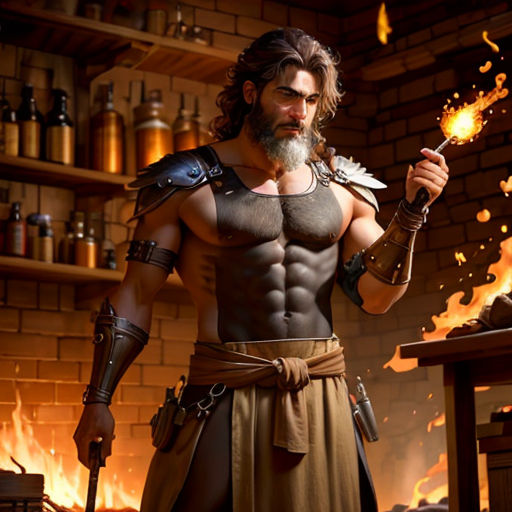
The Forge of the Gods
By greg62000

07 Jan, 2024
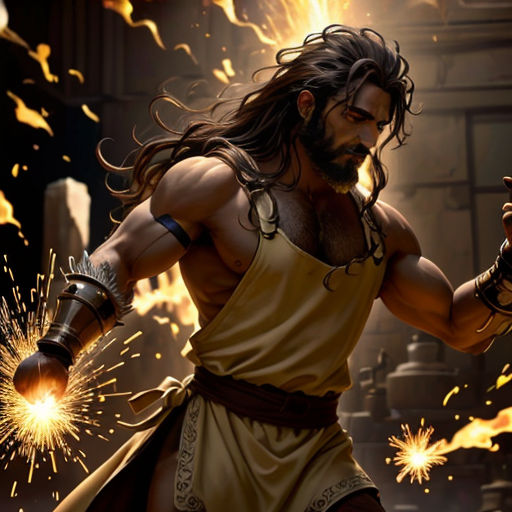
Hephaestus was a unique figure among the gods of ancient Greece, often depicted as a limping but ingenious blacksmith. His twisted physique was a stark contrast to the perfect beauty of his divine peers.
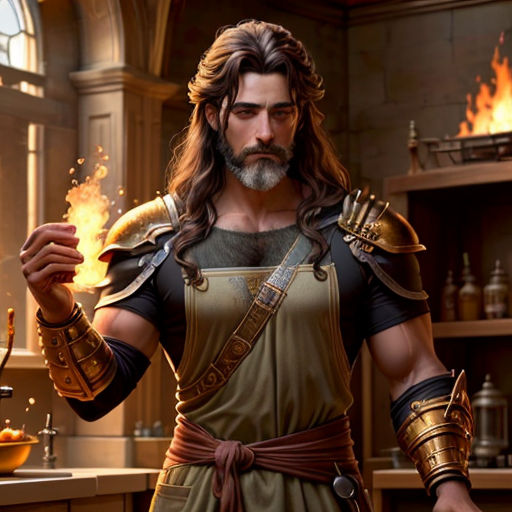
His craftsmanship was unmatched, and his creations were sought after by gods and mortals alike. One such creation was a special armor for Achilles, a gift from Thetis.
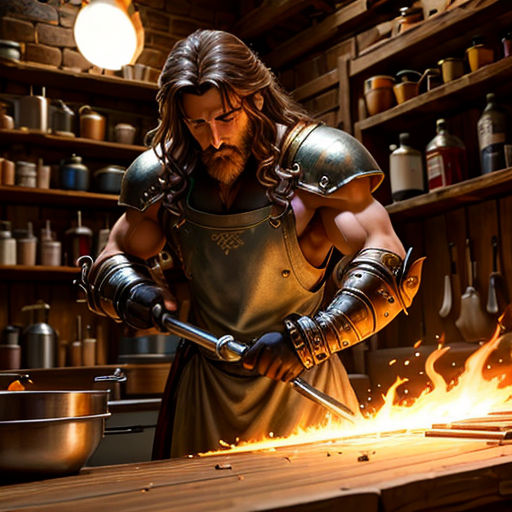
Hephaestus meticulously forged the armor, ensuring it would protect Achilles in his most dangerous battles. The armor was strong, yet flexible, and shone like the sun.

The story of Hephaestus began in a tragic manner. Born to Hera, he was cast off Mount Olympus because of his physical deformity, a harsh rejection from his own mother.

He fell into the sea, where he was found by the nymphs Thetis and Eurynome. They took him to their underwater cave and nurtured him back to health.

In the safety of the underwater cave, Hephaestus began to learn the art of jewelry making. His creations were intricate, displaying a talent beyond his years.
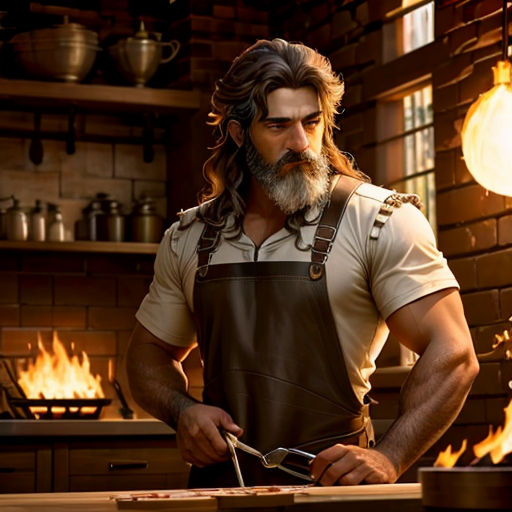
As he grew older, his skills in metallurgy developed. Hephaestus began to create not just jewelry, but weapons and armors of exceptional quality and beauty.
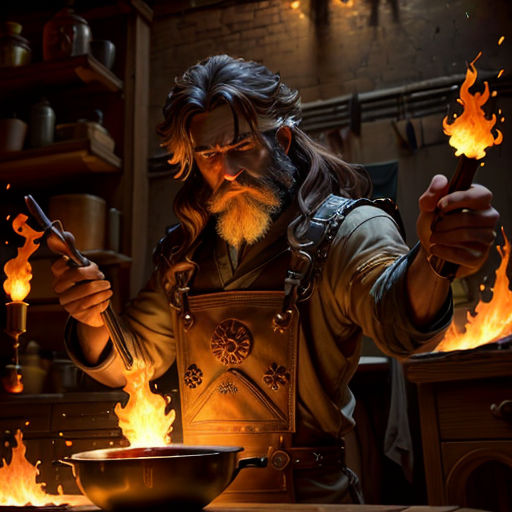
His anger towards Hera for her rejection never faded. In a fit of rage, Hephaestus created a golden throne, an exquisite piece that was a trap in disguise.

Hephaestus sent the throne to Mount Olympus as a gift for Hera. When she sat on it, the trap was sprung, and she was held captive within the golden throne.

The gods pleaded with Hephaestus to release her, but he refused. It was only when Zeus promised him a place on Mount Olympus that he agreed to free Hera.
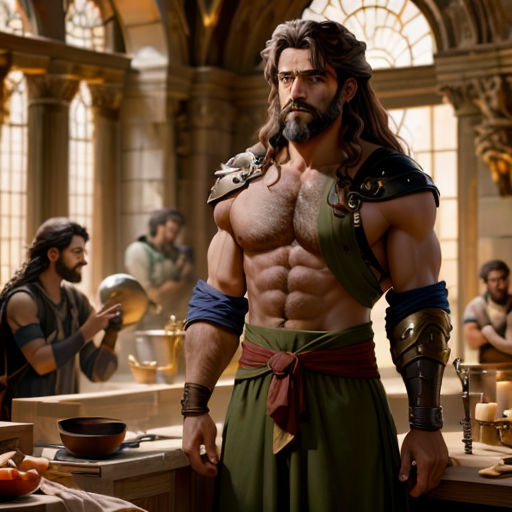
With his return to Mount Olympus, Hephaestus sought to marry Aphrodite, the goddess of love and beauty. However, his proposal was rejected, causing him great sorrow.

Dionysus, the god of wine, intervened. He plied Hephaestus with wine and convinced him to let go of his unrequited love for Aphrodite, advising him to focus on his craft instead.

Hephaestus heeded Dionysus' advice. He immersed himself in his work, creating masterpieces that were admired throughout the realms of gods and men.
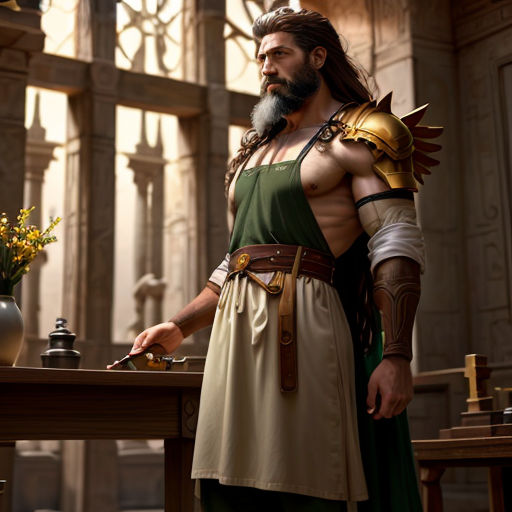
His creations included the Aegis, a shield for Athena, and the winged sandals for Hermes. His work was admired for its beauty and functionality.
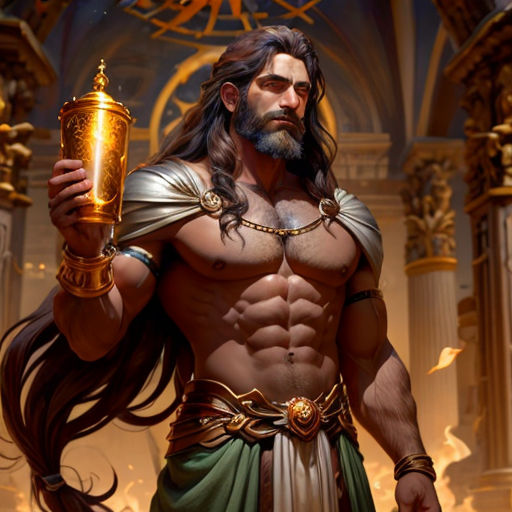
Despite his initial hardships, Hephaestus found his place among the gods of Olympus. His talent and ingenuity were respected, and he was finally accepted for who he was.
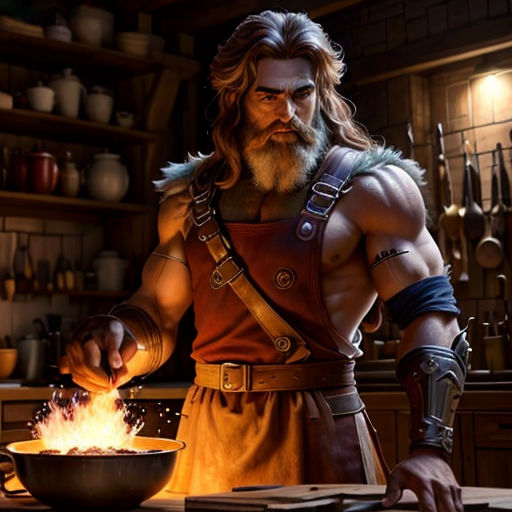
Hephaestus' story serves as a reminder that greatness can come from adversity. His journey from rejection to acceptance is a testament to his resilience and determination.
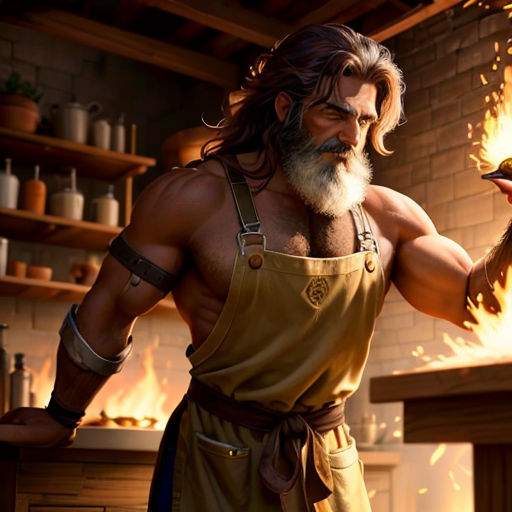
His craft was his refuge and his power. Through the fire and the forge, Hephaestus created a legacy that would outlast the gods themselves.
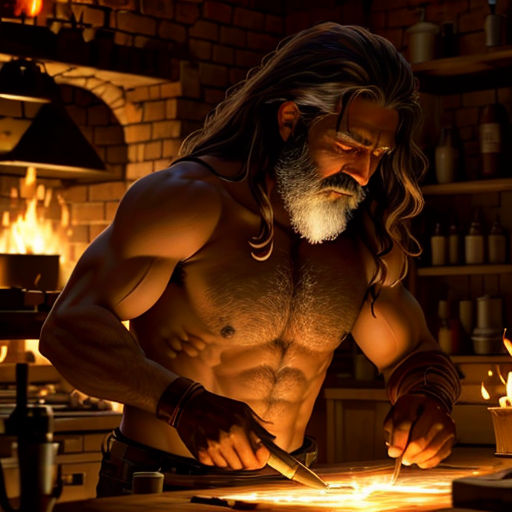
Despite the rejection and hardships, Hephaestus remained dedicated to his craft. His resilience was his strength, and his creations were his legacy.

Through the captivating journey of Hephaestus, we learn that adversity can be a powerful catalyst for growth and that true beauty can be found in imperfection.
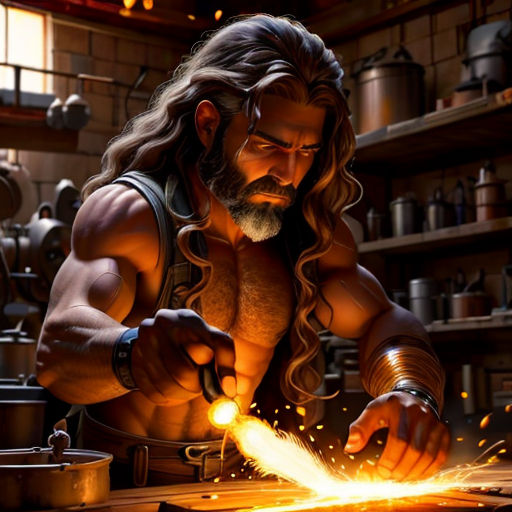
Hephaestus, the god of fire and metalworking, proved that one's worth is not defined by physical appearance but by their skills, resilience, and the impact they have on the world around them.

His story continues to inspire, reminding us that every challenge we face is an opportunity to grow stronger and craft a life worthy of the gods.